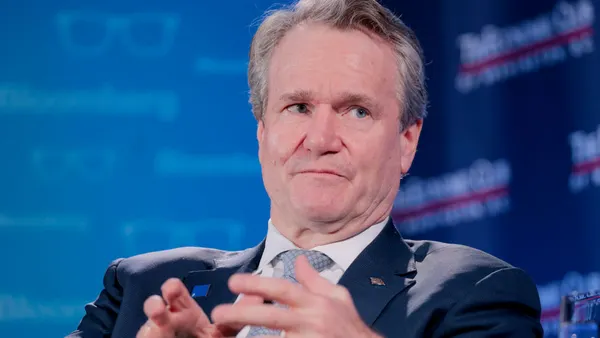Dive Brief:
- Women who reported the highest level of financial acumen are less satisfied with the benefits their companies offer, according to a report released Sept. 11 by The Standard, a provider of financial protection products.
- Three-quarters of women who are the most financially savvy said employers should consider caregiving more deeply when designing benefits plans, the report found.
- “To be most effective at retaining and engaging employees, workplace benefits need to meet the unique needs of different employee populations,” Justin Delaney, senior vice president of external affairs and marketing and communications at The Standard, said in a news release.
Dive Insight:
Generally, women reported lower confidence levels than men in understanding finances, benefits and insurance, The Standard found. Yet, two-thirds of women are the primary benefits providers in their households.
For example, 66% of women said they’re knowledgeable about their benefits, compared to 74% of men. When it comes to insurance, 65% of women said they felt confident about their understanding, while 74% of men said the same.
“These findings point to an opportunity for companies. Tailoring benefits education programs for women would empower them to make more informed choices for themselves and their families,” the report said. These education programs, coupled with flexible benefits packages, could be key to recruiting and retaining women workers, per the study.
Nearly three-quarters of workers said they would be more likely to remain with their company if it offered benefits that were tailored to their personal needs, according to HUB International’s 2025 U.S. Workforce Vitality Gap Index, which was released in August.
One way to do so is to consider caregiving leave, the CEO of leave management provider Sparrow previously told HR Dive. More and more workers find themselves in the “sandwich generation” — those who care for both their parents and young or dependent children — and companies need to offer benefits that reflect their needs if they want to retain them, the CEO said.
















